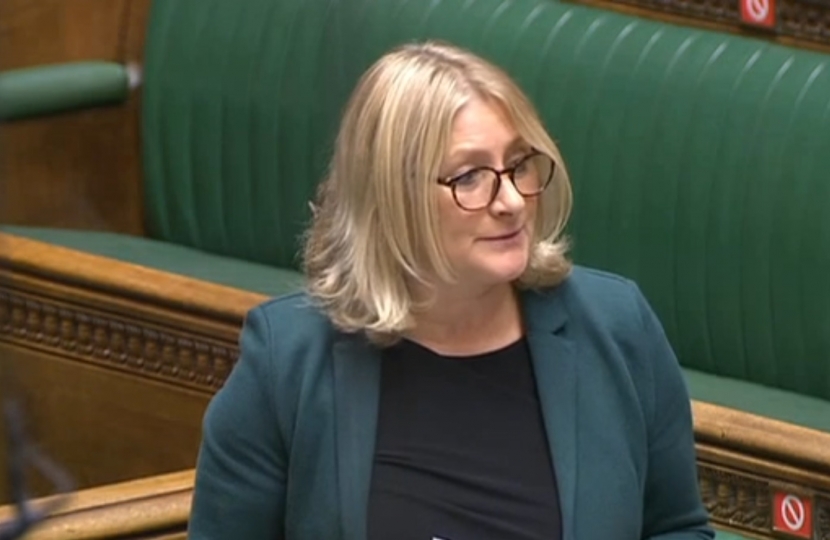
Suzanne Webb:
If she will make a statement on her departmental responsibilities.
Priti Patel:
During these difficult times we will not forget those who feel especially vulnerable as we all spend more time at home. For the victims of domestic abuse, I want to be very clear: even during these tougher restrictions, you do not have to stay at home if you are at risk there. Our #YouAreNotAlone campaign has helped domestic abuse victims and the public know how to access vital support. The site alone has received over 330 million online impressions. We have stepped up our work with the National Crime Agency, pursuing child sex offenders, doing more to keep children safe online and supporting charities working with vulnerable children. Of course, the Work and Pensions Secretary this weekend announced £170 million of support to vulnerable children and families, and the police are stepping up in this space as well. My message is clear: for anybody who is subject to abuse, you are not alone and you must seek help from the police.
Suzanne Webb:
I agree that the new national restrictions this Government have introduced are absolutely necessary to stop the spread of coronavirus, but for vulnerable people and victims of domestic abuse it has not been an easy week. I have also had the great pleasure of meeting my local Barnardo’s, which works with children who have witnessed domestic abuse at first hand and are therefore victims themselves. I thank my right hon. Friend for the measures she has outlined to protect and safeguard the most vulnerable people from abuse.
Priti Patel:
My hon. Friend is absolutely right, and may I thank her for the conscientious way in which she has been raising this issue, but also tackling it locally? I am abundantly clear, and Ministers have spoken of it in the House this afternoon as well, that the support is out there. We continue to work with police forces across the country, which will continue to use the tools of law enforcement to go after abusers, but also to make sure that victims are protected.
Suzanne Webb:
What steps her Department is taking to reduce knife crime.
Kit Malthouse:
We are taking action on every level to cut knife crime. This week sees the instigation of Operation Sceptre—a nationally organised week of intensification against that crime. We are also investing millions of pounds in prevention and early intervention to stop young people being drawn into violence in the first place.
Suzanne Webb:
In 2017, my constituent Ryan Passey was killed with a knife inside a nightclub in Stourbridge. Absurdly, the perpetrator was acquitted. I am grateful for the work done by the Government so far on sentencing, but does the Minister agree that we need to be tough not just on sentencing, but on all aspects that have thus far allowed the perpetrators of knife crime to go free?
Kit Malthouse:
My hon. Friend raises a terrible case. The family of Mr Passey have our deep condolences. Over the past 12 years, I have met far too many parents of children and young people who have sadly been murdered and killed on our streets and in nightclubs, often by people who they regard as friends. Back in the early part of the previous decade, we thought we had beaten knife crime, but unfortunately it is back. My hon. Friend is quite right that we need to concentrate on every aspect of this—from enforcement through to prevention and, frankly, long-term work with young people that shows them that carrying a knife is dangerous not only to others, but fundamentally to themselves. There is a better way. We all need to stand shoulder to shoulder with my hon. Friend and her constituents to show young people that way in life.

